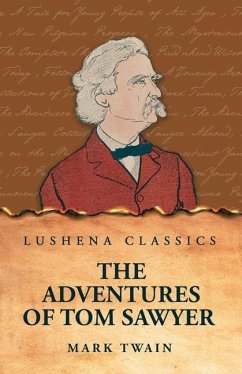
Tom Sawyer Collection
Tom Sawyer Abroad, Tom Sawyer Detective
Versandkostenfrei!
Versandfertig in 1-2 Wochen
20,99 €
inkl. MwSt.
Weitere Ausgaben:

PAYBACK Punkte
10 °P sammeln!
1. "Tom Sawyer Abroad" (1894) follows Tom, Huck Finn, and Jim as they embark on a journey across the Atlantic Ocean in a hot air balloon. Along the way, they encounter various adventures and mishaps, including encounters with wild animals and a visit to various exotic lands. The story is filled with Twain's trademark humor and satire, offering a playful twist on the adventure genre. 2. "Tom Sawyer, Detective" (1896) is a detective novel featuring Tom Sawyer and Huck Finn as they attempt to solve a mysterious murder case. The story is set in the fictional town of St. Petersburg and follows Tom ...
1. "Tom Sawyer Abroad" (1894) follows Tom, Huck Finn, and Jim as they embark on a journey across the Atlantic Ocean in a hot air balloon. Along the way, they encounter various adventures and mishaps, including encounters with wild animals and a visit to various exotic lands. The story is filled with Twain's trademark humor and satire, offering a playful twist on the adventure genre. 2. "Tom Sawyer, Detective" (1896) is a detective novel featuring Tom Sawyer and Huck Finn as they attempt to solve a mysterious murder case. The story is set in the fictional town of St. Petersburg and follows Tom and Huck as they use their wits and ingenuity to unravel the truth behind the crime. Like Twain's other works, "Tom Sawyer, Detective" combines elements of humor, suspense, and social commentary. While not as well-known as "The Adventures of Tom Sawyer" or "The Adventures of Huckleberry Finn," these two works offer readers further insight into the world of Tom Sawyer and showcase Twain's versatility as a writer.














